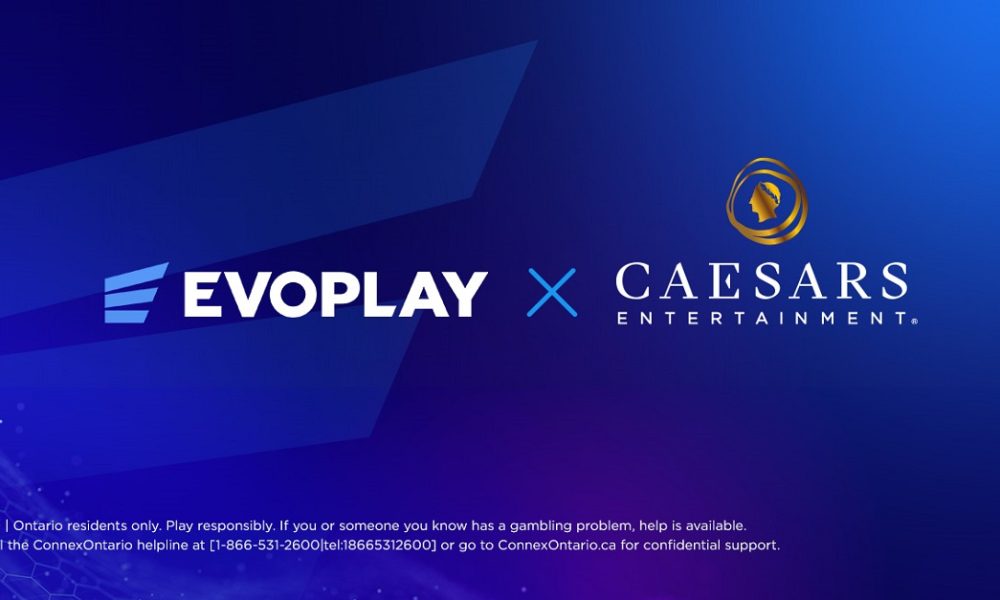Canada
New Report: Gaming Industry Workforce More Diverse than U.S., Hospitality Benchmarks Analysis of EEOC Data Details Gaming’s Advancements on Diversity
Today, the American Gaming Association (AGA) released new research providing an in-depth examination of diversity in the gaming industry workforce. The findings show that the gaming industry is more diverse than national and hospitality industry benchmarks and boasts a diverse executive pipeline, while identifying opportunities on gender representation.
“Consumers, policymakers and investors are raising their expectations for all businesses on how they contribute to society beyond the bottom line,” said AGA President and CEO Bill Miller. “Encompassing data from across commercial, tribal and manufacturing gaming verticals, the survey both highlights our industry’s leadership on diversity while presenting areas for continued progress.”
The study’s findings show tangible results of the industry’s broad reach and commitment to representing local communities:
- More than 6 in 10 (61%) of gaming industry employees are minorities, compared to 52 percent of the broader hospitality industry and 42 percent of the total U.S. workforce.
- 23 percent of gaming employees are Hispanic and 19 percent are Black—both higher than the national workforce and in line with the hospitality industry.
- 60 percent of operator employees are minorities, up nearly 20 percent from 2011 and higher than the hospitality sector and national workforces overall.
- 45 percent of gaming manufacturer employees are minorities, compared to 38 percent of the broader electronic manufacturing workforce.
Importantly, across job levels, gaming’s leadership pipeline is significantly more diverse than national averages at the first/mid-level manager and professional levels: 45 percent of first/mid-level managers are minorities while 43 percent of professionals are minorities, both 10 to 12 points above national and hospitality benchmarks.
Gender diversity presents an opportunity for the industry. Gaming’s workforce is 48 percent female, in line with the national workforce, but representation drops off at more senior level job classifications.
“As today’s report shows, our industry has made impactful strides toward becoming more diverse, but there is more work to do,” added Miller. “The AGA will use this research to engage our membership on how we can collectively advance DEI in gaming in the months and years to come.”
The benchmarking report comes a year after the AGA identified core pillars of ESG in gaming: advancing sustainability, strengthening DEI, investing in communities and leading responsibly.
Methodology
A total of 26 AGA member organizations participated in the study, including companies from the manufacturer (8) and the commercial and tribal operator (18) segments of the gaming industry. Through the EEO-01 form, participants provided gender, race/ethnicity and job classification data for their workforces. Participants submitted data to a third-party accounting firm which calculated the various diversity metrics and safeguarded confidentiality. The data submitted has been reviewed for consistency across participants.
Canada
absolutebet Secures AGCO Registration as an Internet Gaming Operator in Ontario

Internet Gaming Operator by the Alcohol and Gaming Commission of Ontario (AGCO).
This significant milestone authorizes absolutebet to offer regulated iGaming services in Ontario’s legal market under the oversight of AGCO and iGaming Ontario (iGO).
The registration marks a key step in absolutebet’s mission to bring a trusted, responsible, and innovative online casino experience to Ontario players. absolutebet is committed to operating with integrity and transparency, meeting all provincial standards for player protection, responsible gambling, anti-money laundering, and game integrity.
“Securing AGCO registration is more than a milestone—it’s the start of absolutebet’s journey in one of the most exciting regulated markets in the world,” said Chen Truman, Founder of absolutebet. “We are building a brand that will grow with the Ontario community and set the stage for future expansion.”
On the regulatory milestone, Krisztina Kalla, Legal & Regulatory Compliance Advisor of absolutebet, commented: “I’m incredibly proud to see all the hard work behind this license pay off. Securing AGCO registration has taken months of preparation and close collaboration with regulators and partners. I am very happy to see the result of that work, and even more excited as we move into the launch phase and open up the absolutebet community to Ontario players in a fun and responsible way.”
Ontario is recognized as one of the most competitive and fast-growing regulated iGaming markets in North America. With AGCO registration secured, absolutebet will move forward with the final stages of its iGO onboarding process in preparation for launch.
The post absolutebet Secures AGCO Registration as an Internet Gaming Operator in Ontario appeared first on Gaming and Gambling Industry in the Americas.
Alex Malchenko Head of Sales at Evoplay
Evoplay strengthens Ontario presence in partnership with Caesars Entertainment

Evoplay, the award-winning game development studio, has partnered with Caesars Entertainment to expand its footprint in the Canadian market, following its initial entry earlier this year. The partnership integrates 20 of the studio’s top-performing titles onto Caesars Palace Online Casino, Horseshoe Online Casino and Caesars Sportsbook & Casino in Ontario, including fan-favourites such as Hot Triple Sevens, Triple Chili, and The Greatest Catch Bonus Buy.
Having announced its official entrance into Ontario in March, the collaboration with Caesars marks a significant step in Evoplay’s local strategy. Further standout releases, such as Inner Fire Bonus Buy and Hot Volcano, also launched as part of the initial package, with additional player favourites, including Fruit Nova and Ice Mania.
The collaboration underlines Evoplay’s commitment to working with leading operators to deliver high-quality content tailored to regional audiences.
Alex Malchenko, Head of Sales at Evoplay, said: “Launching with Caesars in Ontario marks a key milestone in our North American strategy.
“It reflects both the strength of our portfolio and our commitment to providing innovative, high-performing content to operators of the highest caliber.”
Ricardo Cornejo Rivas, Vice President of Online Gaming at Caesars Digital, said: “Evoplay brings a fresh and dynamic approach to online gaming, which we’re excited to offer to our players in Ontario. This portfolio of standout titles adds to our growing content library and furthering our ongoing goal of delivering top-tier entertainment experiences to our players.”
The post Evoplay strengthens Ontario presence in partnership with Caesars Entertainment appeared first on Gaming and Gambling Industry in the Americas.
Canada
iGaming Ontario Appoints Joseph Hillier as its New President and CEO

The iGaming Ontario Board of Directors has announced Joseph Hillier as the organization’s new President and Chief Executive Officer, effective September 8, 2025. Joseph’s depth in the Ontario igaming market combined with successful public and private sector careers make him the ideal President and CEO at this critical point in iGaming Ontario’s growth.
Joseph was most recently Chief Strategy Officer and Corporate Secretary at the Alcohol and Gaming Commission of Ontario (AGCO), where he delivered significant strategic and regulatory initiatives across the province’s alcohol, cannabis, gaming, and horse racing sectors. Prior to the AGCO, he served as Chief of Staff to Ontario Attorney General Hon. Doug Downey and led the development, launch and implementation of Canada’s first private sector-driven igaming market and the creation of iGaming Ontario. Joseph also spent more than a decade working in the financial and legal services sectors.
The Board expressed its sincere thanks to David Smith for serving as Interim President and Chief Executive Officer since Martha Otton’s retirement.
The post iGaming Ontario Appoints Joseph Hillier as its New President and CEO appeared first on Gaming and Gambling Industry in the Americas.
-

 gaming3 years ago
gaming3 years agoODIN by 4Players: Immersive, state-of-the-art in-game audio launches into the next generation of gaming
-
EEG iGaming Directory8 years ago
iSoftBet continues to grow with new release Forest Mania
-
News7 years ago
Softbroke collaborates with Asia Live Tech for the expansion of the service line in the igaming market
-
News7 years ago
Super Bowl LIII: NFL Fans Can Bet on the #1 Sportsbook Review Site Betting-Super-Bowl.com, Providing Free Unbiased and Trusted News, Picks and Predictions
-
iGaming Industry8 years ago
Rick Meitzler appointed to the Indian Gaming Magazine Advisory Board for 2018
-
News7 years ago
REVEALED: Top eSports players set to earn $3.2 million in 2019
-
iGaming Industry8 years ago
French Senator raises Loot Boxes to France’s Gambling Regulator
-
News7 years ago
Exclusive Interview with Miklos Handa (Founder of the email marketing solutions, “MailMike.net”), speaker at Vienna International Gaming Expo 2018








